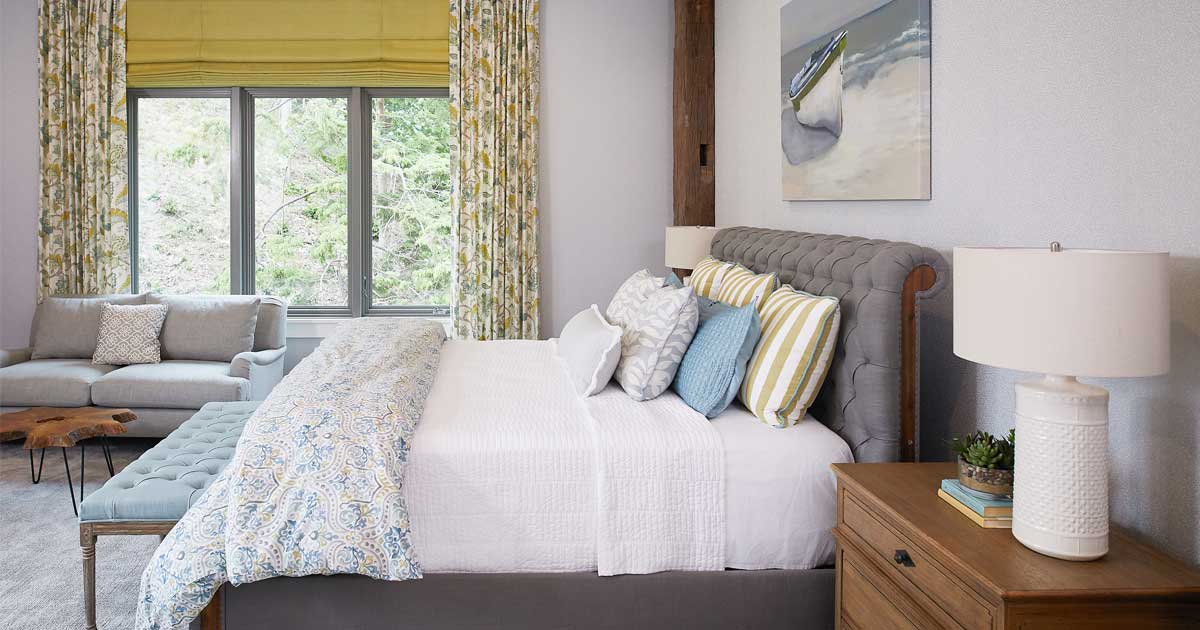Sleep can be hard to come by, these days.
While working from home has saved preparation and commute time for some, others find it hard to separate the office from the bedroom. Plus, social media constantly throws frightening news at us—often the last thing we see before bedtime.
According to Spectrum Health sleep expert and neurologist Kelly Waters, M.D., almost no one is getting enough sleep. The average in America is 6.5 hours, when we should be aiming for at least 7 and ideally more.
Most of us know general sleep wisdom: Go to bed earlier, put away the screens, don't drink caffeine too late. Those tips only work if you actually stick to it. Dr. Waters suggests focusing on easy things you can do that make your bad habits harder to fall into. Here's her actionable advice:
- Leave your phone—and anyone else's—charging outside of the bedroom. Get an alarm clock to wake you up, if you need to.
- The snooze button can be fine. But if it's just disrupting your sleep for half an hour every morning, find a better way to wake up.
- Have a separate office and bedroom, if possible. If not, do your best to compartmentalize the spaces.
- Allow yourself time to decompress—maybe even journal—in bed before falling asleep, especially if you're typically so busy you don't have time to process your thoughts and emotions throughout the day.
- If you're having trouble winding down in bed, establish a comfy spot elsewhere for mellowing out before getting under the covers.
- Have a daily sleep schedule that you stick to as closely as you can.
- If you're a new mom, get rest whenever you can, whether that means naps or sleeping when the baby sleeps or whatever else you can do.
Life makes it hard to do this perfectly, yet getting enough sleep can make a huge difference. Waters noticed when she started following her own advice, her ability to focus and pleasure taken in her job increased right away.
Aside from all this, making your bedroom sleep friendly is a big way to improve your sleep health. Overall, Waters notes, that means "cool, calm, dark and quiet." Interior designer Autumn Fuchs of Fuchsia Design puts these ideas at the forefront when designing a bedroom.
First and foremost: Fuchs starts with the bed, but never picks the mattress out for clients—that's something you need to test yourself before purchasing. She recommends getting a larger or split mattress if you're in a couple and going for breathable cotton sheets that promote air flow and "can help you wake up less."
Light is a big deal for sleep, especially in the modern world. Blackout curtains are ideal. A pro-tip from Fuchs: "If you're looking for true room blackout and opting for roller shades, I recommend either pairing them with draperies or mounting them outside your window jambs." This will keep out any light trying to escape from the sides.
It's also important to think about color palette, as different hues can have a real impact on our emotions and desires. "Even as someone who embraces bold, vibrant colors in my own home, I opted for a serene palette of light gray, pale blue and white in my master bedroom," Fuchs said. "The color blue promotes calmness and can even reduce blood pressure, so it's the perfect option for a bedroom. If you love warm, vibrant colors, stick to incorporating them into energized spaces like your kitchen or family room."
Fuchs recommends separating your work, play and rest, as well.
While finding the best sleep isn't exactly easy, it's possible if you establish routines and make your bedroom as cozy as possible. As far as creature comforts go, a good night's rest is hard to beat.
Josh Veal is the managing editor of Revue and a former nonprofit reporter. He keeps in the know on local restaurants, breweries and venues through ample firsthand experience. Josh enjoys cocktails on the porch, graphic novels, social justice and biking through nature.
This article originally appeared in the Dec 2020/Jan 2021 issue of West Michigan Woman.
Photo courtesy of Fuchsia Design.




